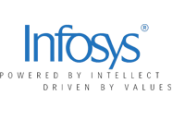DevOps Certification
Certified DevOps Engineer - Professional
You will be empowered to implement the latest DevOps methodologies in your organization.
HashiCorp Certified: Terraform Associate Training
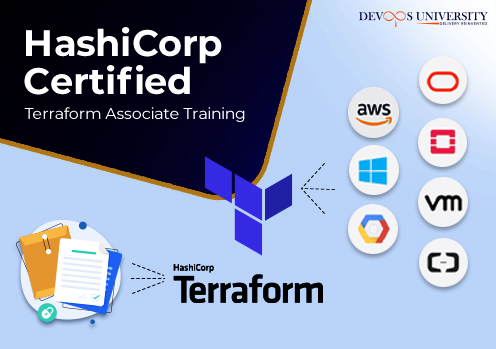
Promote your career growth with DevOps Professional Certification
Terraform is an open-source “Infrastructure as Code” tool, created by HashiCorp for building, changing, and versioning infrastructure safely and efficiently. Terraform can manage existing and popular service providers as well as custom in-house solutions. Terraform empoweres you to code your infrastructure such as compute instances, storage, and networking, as well as high-level components such as DNS entries, SaaS features, etc.
In HashiCorp Certified: Terraform Associate Training Course by DevOps University, you will be trained to become an expert in the principles of Infrastructure as Code, resources, modules, variables, state management, the Terraform workflow, Terraform Cloud, workspaces, and many more in a multi-cloud environment.
50% Discount on Training Cost : $499 $249
Next Course: Will be updated soon
Limited no. of seats available
Program Duration: 3.5 weeks
6 - 8 hours/week (Weekend Only)
Live Online Classroom
Training Partner – DevLabs Alliance
World’s #1 DevOps Workshop
Learn by watching videos practice!
“Tell me and I forget, teach me and I may remember, involve me and I learn.”
Benjamin Franklin’s famous quote has since been proven by science; educators now call it “experiential learning.”
Unlock your career growth with DevOps
Program Overview
Terraform is an open-source “Infrastructure as Code” (IaC) tool that automates the provisioning of infrastructure, enabling organizations to develop, deploy, and scale cloud applications with greater speed, less risk, and reduced cost. Terraform enables developers to use a high-level configuration language called HCL (HashiCorp Configuration Language) to describe low-level infrastructures provisioning such as compute instances, storage, and networking to high-level components such as DNS, SaaS, etc.
Terraform is an open-source, platform-agnostic, and provisions immutable infrastructure. In this 21-hours hands-on workshop, you will learn from the very basics of Terraform to advance concepts provisioning on the cloud as well on-prem data centers. This workshop will teach you everything you need to know to pass your Hashicorp Certified: Terraform Associate exam.
- Git
- Jenkins
- Maven
- Docker
- Kubernetes
- Ansible
- Splunk
- Nagios
- Grafana
- Prometheus
- Docker Swarm
- Jenkins Pipeline as Code
Key Features
- Designed by Industry experts
- Real-life examples and case studies
- Interactive/online Classes
- Assignments
The HashiCorp Certified: Terraform Associate Training by DevOps University will make you proficient in various aspects of Infrastructure as Code (IaC), resources, modules, state management and is designed to help you become a HashiCorp Certified: Terraform Associate and apply the latest DevOps methodology to automate your software development life cycle.
The key features of our learning program would be:
- Innovative and Interactive Training sessions
- Explanation of concepts with concise and professional examples
- Self-analysis and group discussions
- Case studies as the application of the concepts which were taught
- Vibrant presentations along with individual and team activities
- Post-training reading suggestions
Date
Will be updated soon
Time
07:00PM – 09:00PM (IST)
09:30PM – 11:30AM (SGT)
02:30PM – 04:30PM (CET)
08:30AM – 10:30AM (EST)
11:00PM – 01:00AM (ACST)
Training Cost
$499 USD + Taxes $249
(50% Discount)
Certification Cost
$95 USD (Included)
INSTRUCTOR LED TRAINING
$499 $249
- Hands-on experience
- A Community Of Learning
- An Immersive Learning Experience
- LMS support
Dates Will be updated soon
CORPORATE TRAINING
(Customized to your needs)
- Certification Based Corporate Training
- Highly qualified and dedicated trainers
- On demand demo sessions
- Help address specific challenges
Thousands of lucrative job opportunities for Certified DevOps professionals out there…
Go, Grab them!!!
Certification Cost: $95 USD
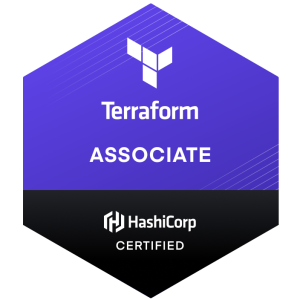
Skills Covered
- Configuration Management
- Terraform Cloud
- HCL - HashiCorp Configuration Language
- Various Terraform Providers
- Infrastructure as Code (IaC)
- Comparison with other provisioning tools
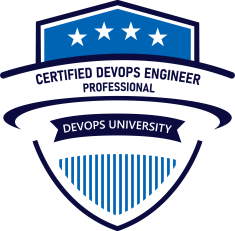
Certification Overview
Begin accelerating your career with DevOps today
Whether you are about to venture DevOps or are already working as a part of DevOps team, it is extremely important for an IT professional to have knowledge of the revolutionary transformation DevOps can bring to organizational success and why it is such a buzzword in the industry.
Regardless of the present role in the company, every individual in this digitalization age must consider doing Certified DevOps Professional certification to give the right direction to their DevOps venture.
Certification Cost: $95 USD

Topics Covered
Benefits
Benefits for Employees, IT professionals
It is an official evidence of your knowledge about basic principles of DevOps.
It gives you an edge over others and helps you get better career opportunities compared to others at the same level.
35%+ salary hikes for DevOps engineers (CTC – Online Survey)
Benefits for Employers/Organizations
Cost reduction due to efficient processes and streamlined workflow.
With qualified DevOps professionals in the team, productivity is higher.
Better quality deliverables and higher customer satisfaction.
TOOLS COVERED




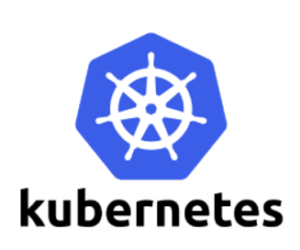









Course Details
- Explain what IaC is
- Describe advantages of IaC patterns
- Explain multi-cloud and provider-agnostic benefits
- Explain the benefits of state
- Handle Terraform and provider installation and versioning
- Describe plug-in based architecture
- Demonstrate using multiple providers
- Describe how Terraform finds and fetches providers
- Explain when to use and not use provisioners and when to use local-exec or remote-exec
- Given a scenario: choose when to use terraform fmt to format code
- Given a scenario: choose when to use terraform taint to taint Terraform resources
- Given a scenario: choose when to use terraform import to import existing infrastructure into your Terraform state
- Given a scenario: choose when to use terraform workspace to create workspaces
- Given a scenario: choose when to use terraform state to view Terraform state
- Given a scenario: choose when to enable verbose logging and what the outcome/value is
- Contrast module source options
- Interact with module inputs and outputs
- Describe variable scope within modules/child modules
- Discover modules from the public Terraform Module Registry
- Defining module version
- Describe Terraform workflow ( Write -> Plan -> Create )
- Initialize a Terraform working directory (terraform init)
- Validate a Terraform configuration (terraform validate)
- Generate and review an execution plan for Terraform (terraform plan)
- Execute changes to infrastructure with Terraform (terraform apply)
- Destroy Terraform managed infrastructure (terraform destroy)
- Describe default local backend
- Outline state locking
- Handle backend authentication methods
- Describe remote state storage mechanisms and supported standard backends
- Describe effect of Terraform refresh on state
- Describe backend block in configuration and best practices for partial configurations
- Understand secret management in state files
- Demonstrate use of variables and outputs
- Describe secure secret injection best practice
- Understand the use of collection and structural types
- Create and differentiate resource and data configuration
- Use resource addressing and resource parameters to connect resources together
- What and why is Kubernetes
- Comparison with Docker Swarm
- Installation
- Components and Terminology
- Masters and Nodes
- Pods
- Replications
- Services
- Deployment
- Introduction
- Ansible Server / Ansible Controller
- Ansible and Infrastructure Management
- Ansible Server Configuration file
- How Ansible picks the configuration
- Update MISC parameters
- Ansible Inventory
- Ungrouped Hosts
- Grouped Hosts
- Groups of Groups
- checking connection to remote nodes o SSH Keys
- Using username/password
- Ansible Facts
- Ansible Playbooks
- 'hosts' parameter
- 'become' parameter
- 'gather_facts' parameter
- 'tasks' parameter
- Conditions
- Loops
- with_items
- How to store output of one task and use it in another task
- Variables
- Roles
- MISC
- Ansible Vault
- Ansible Pull
- Ansible Galaxy
- Ansible AWX (Tower)
- Use cases and Examples
- Overview of Puppet
- Comparison of Ansible and Puppet
- What Is Splunk
- About Machine Data
- What does Splunk Do?
- Why Splunk
- Understanding Splunk Architecture & its Components
- Installation of Splunk and Forwarder
- Splunk Search
- Use cases and Examples
- Infrastructure monitoring Intro
- Nagios Core vs XI
- Setting up Nagios
- Configuring Windows & Linux Hosts
- Configuring Alerts and Email Notifications
- Plugins
- Introduction to Prometheus and Grafana
- Container monitoring with Prometheus and Grafana
- Introduction to JPaC
- Types of JPaC
- Declarative
- Scripted
- Pipeline as a code basics
- Building a basic CI pipeline as code for Java app
- Building a job from pipeline code present in GIT repo.
- Executing parallel stages in a pipeline
- Generating pipeline script & directives using Jenkins inbuilt generators.
- Introduction to Configuration Management
- Introduction to Provisioning
- Infrastructure as a code
- About Terraform
- Setting up Terraform
- Understanding HCL
- Basics of Terraform — variables, templates, modules & commands
- Terraform for Local Changes
- Terraform on AWS
- Terraform on Google Cloud
- Evolution of Microservices
- Monolithic Architecture
- Service Oriented Architecture
- What is Microservice
- SOA vs Microservice
- Microservice Develop
- Write First Microservice
- Microservice Testing
- Testing Scenarios and Strategy
- Test at Different levels
- Deploying Microservice
- Setting Up CICD pipeline
- Touchless Deployment to Prod Environment
Request A Batch

Learner Reviews
Best in class teaching methodology in this DevOps workshop. The certification and knowledge I gained really helped me in my professional career. A flawless way to learn devops with practical aspects.

I attended the session in March 2021, as of my experience, it is so helpful to me to work with the deployment of my working project, all given hands-on and knowledge delivery, its too good, in the given session, one to one discussion had cleared my doubts. Thank you for providing in-depth training.

It’s a great DevOps course. I am so glad that I took this course. It focuses on DevOps components, related processes, and reasons for implementing DevOps not only but with practical stuff too. The instructor was excellent – clearly explained things and made it easy to comprehend the learning objectives.

WHY DEVOPS UNIVERSITY?
Live Virtual Classroom
Engage and learn more with these live and highly-interactive classes alongside your peers
24/7 Teaching Assistance
Keep engaged with integrated teaching assistance in your desktop and mobile learning
Hands-on Program
A complete hands-on practical oriented workshop
DEVOPS CERTIFICATIONS AND COURSES PROVIDED BY DEVOPS UNIVERSITY ARE APPROVED BY LEADING ORGANIZATIONS

















